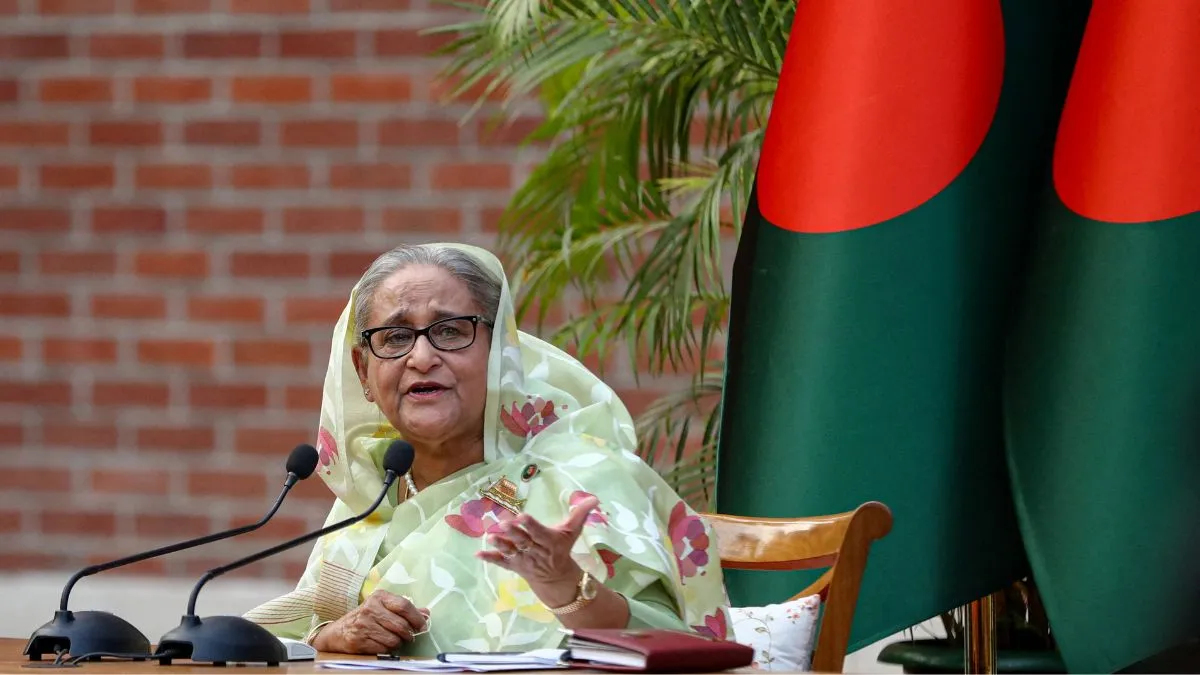Bangladesh Politics: Awami League's Uncertain Future After Regime Change
The political landscape of Bangladesh is in upheaval following the ouster of Sheikh Hasina's Awami League government. In a stunning turn of events, a mass uprising led to Hasina's departure, leaving the nation questioning who will lead it into the future and whether the Awami League will even be part of it. Will this power vacuum trigger a domino effect, influencing neighboring countries and causing worldwide implications? Find out in this explosive report!
The Aftermath of the Uprising: Who's in Charge?
Muhammad Yunus's interim government, now at the helm, has made it clear: the Awami League will not be participating in the upcoming elections. This decision, declared by Mahfuz Alam, a key adviser, has sent shockwaves through the country, and likely far beyond Bangladesh's borders. According to Alam, the election will involve only groups considered "pro-Bangladesh." These include the Bangladesh Nationalist Party (BNP), Jamaat-e-Islam, and other like-minded groups. Alam, introduced by Yunus as the mastermind behind the anti-Hasina movement, envisions a future governance model defined by these key players.
Key Players and Their Stakes
The absence of the Awami League from the electoral process is not only a seismic shift in Bangladesh's political dynamics; it's also an act likely to trigger debate and discontent domestically and internationally. The statement's far-reaching impact and the ripple effect it will likely create raises critical questions about political stability and foreign policy implications. These implications have to be addressed carefully in order to steer Bangladesh away from possible international isolation. This uncertainty creates room for unexpected partnerships that would redefine the balance of power within and outside of Bangladesh. For the world at large, this situation in Bangladesh adds to growing concerns about democratic norms and regional security. The exclusion of such a powerful political force carries a huge weight politically.
The BNP's Cautious Stance: A Shifting Alliance?
Interestingly, the BNP, a major political opponent of the Awami League, has voiced its opposition to banning any political party. While the BNP has not actively shown support for the Awami League, their hesitation to celebrate this complete political purge suggests a potential level of strategic consideration for future alliances in the post-Hasina political landscape. This unexpected ambiguity hints at a deeper, more nuanced political game being played than is overtly visible.
A Balancing Act: Short-Term Reforms and Long-Term Stability
The BNP's call for elections after minimal reforms reflects a complex balancing act. They recognize the need for reform but also the urgent need for political stability. The claim by the interim government that such reforms could take a decade highlights the massive undertaking of rebuilding political infrastructure. It suggests that any election will be influenced by multiple variables – from the state of reconstruction, international pressure, and any compromises brokered amongst the factions that will shape the emerging government. The potential for delayed and delayed elections due to extended reforms also raises critical questions about the nature of the country's interim administration. With so much up in the air, a tenuous balance hangs precariously in the balance.
The Formation of New Political Parties: A New Generation Takes the Reins?
Amidst this ongoing political reshaping, speculation swirls around the emergence of new youth-led parties formed from student leaders actively involved in the uprising. There's concern, however, that such a development, especially one involving government figures, would severely damage the credibility of the interim government, a huge factor in the current fragile atmosphere.
A Risky Maneuver: The Advisor's Ambitions
Advisors within the interim government are even contemplating resigning to directly participate in forming and running a new party. Such an action suggests considerable ambition that could throw a wrench into the delicate process of selecting a future government.
The Uncertain Path Ahead: When Will Elections Be Held?
The timeline for elections remains vague. While interim chief adviser Yunus has suggested late 2025 or early 2026, the actual date hinges largely on the completion of reforms and broader political consensus—elements as equally probable and uncertain as any event in a political transition of this scale and consequence. It is important to observe how external actors and organizations influence this crucial negotiation and ensure the ongoing support and collaboration required for sustainable progress towards resolving this uncertain and challenging situation. The future stability of this key state is in great question.
Take Away Points:
- The Awami League's exclusion from upcoming elections signifies a significant power shift in Bangladesh.
- The BNP's cautious stance towards the ban hints at complex political calculations for future alliances.
- The potential emergence of new youth-led political parties introduces an added layer of complexity to the situation.
- The timing of elections remains highly uncertain, depending heavily on various elements of political change and uncertainty.




